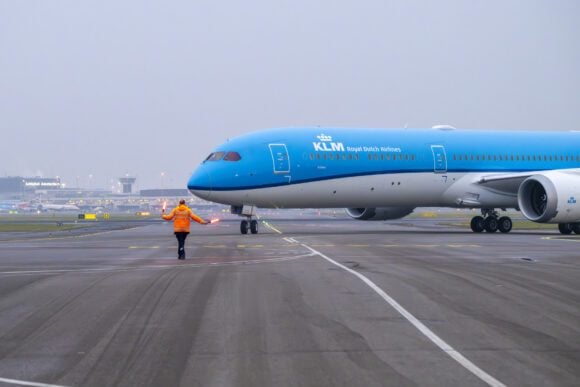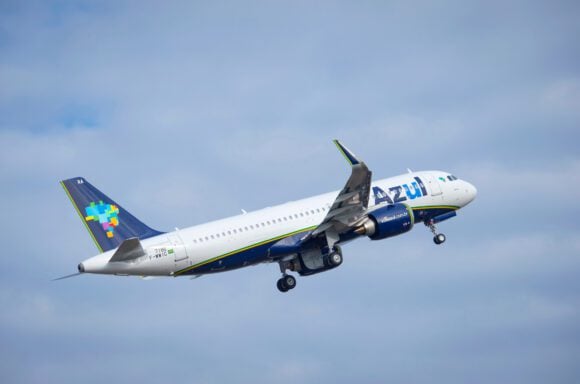
Indian aviation
This week in Indian aviation was dominated by IndiGo’s annual analyst meeting, which outlined its plans, Air India CEO’s new take on supply chain, SpiceJet’s announcement on investments, and an investigative report on the airline.
IndiGo’s Growth Plans
Every year, IndiGo meets analysts around this time to outline its plans and share any other key updates. This year’s meeting stood out for two things: despite the challenging global supply-chain issues, the airline said it plans to have low-double growth even in the next fiscal year, and it will sharply increase its international footprint with the arrival of its first Airbus A321XLRs.
In a presentation to the stock exchanges, the airline also noted that it plans to add 14 new destinations in FY2026, receive more than one new aircraft per week, and increase its workforce by 3,000 employees.
With several A321XLR arriving later this year, IndiGo plans to open multiple virgin routes in Asia and Europe as these extended-range planes will allow it to fly for 7.5-8.5 hours. The airline will expand its international footprint as it sees a rising Tata and Singapore Airlines-backed Air India. The latter has consistently led in international operations compared to IndiGo’s domestic dominance, with a nearly 65% market share already.
Even as its fleet grows from 400+ to around 600 by 2030, the airline’s international seat capacity share will increase to 40% by now, up from 28%.
This will be possible with the help of not just A321XLRs but also the wet-leased Boeing 787s that it has already started inducting, even as it waits for its own Airbus A350s, which are expected to arrive from 2027-28.
Air India’s Fleet Challenges
While many would have expected that the global slump in aircraft deliveries would continue for perhaps another two years or so (remember when Boeing recently said that it would supply around two planes a month to India for the next two years?), Air India CEO Campbell Wilson got everyone talking when, at an airline symposium this week, he said that the aircraft shortage will likely persist for another four to five years.
Air India has ordered around 570 planes from Boeing and Airbus. However, it has experienced severe delivery delays, which have hurt its planned turnaround from a government-run airline to a relatively nimble private-sector player that can take on global majors like Emirates and Lufthansa.
Wilson specifically pointed out that the supply of narrow-body jet engines, business, first-class seats, and some elements of aircraft fuselage are the more significant pain points, forcing the airline to not expand at the rate it wanted. Instead, the 300-plane airline has to think hard about how to use its existing assets. The increased competition among airlines to lease whatever planes are in the market has also made leasing arduous, he said without mentioning IndiGo, which surprised everyone this year, saying it will wet lease Boeing 787s for the first time. It also appeared that Campbell is not very happy with Boeing, whose aircraft options from the earlier order book Air India have not been confirmed yet, even though Airbus options, placed around the same time, have been exercised.
What are the timelines for Boeing 777X?
“Who knows?” Wilson told reporters.
For Tatas, which has already invested nearly $3 billion in the airline’s turnaround, such delays and a growing IndiGo challenge are perhaps very stressful. Still, in some positive news, the airline rolled out its first retrofitted Airbus A320neo VT-EXN plane as part of a $400 million cabin refurbishment program. All of its 27 A320neos will be upgraded by the third quarter of this calendar year, perhaps bringing some smiles to the faces of its passengers who had become used to Vistara’s new planes and warm service (it has now been merged into Air India and plies on key metro routes).
SpiceJet’s “turbulence”
SpiceJet announced that its founder, Ajay Singh, will infuse around $35 million into the airline by converting warrants into equity shares, increasing the promoter group’s stake from 29.11% to 33.47%. While this sent the airline’s stock soaring, the mood was dampened. A news channel said its investigation had found that “SpiceJet continues to face concerns regarding financial stability, regulatory compliance, and operational sustainability. Independent audits and credit rating downgrades raise doubts about its long-term viability, while stock market fluctuations fuel speculation about potential manipulation.”
The airline responded to these comments.
Still, such questions make life difficult for the airline. The airline, which has been battling several court cases, raised around $350 million in September to pay off dozens of vendors and government taxes and start afresh.
Views: 215
About The Author
Take AirInsight for a Test Flight
7 days full access — premium analysis and the complete data model library — for $1. No commitment.
Start My Test Flight →


